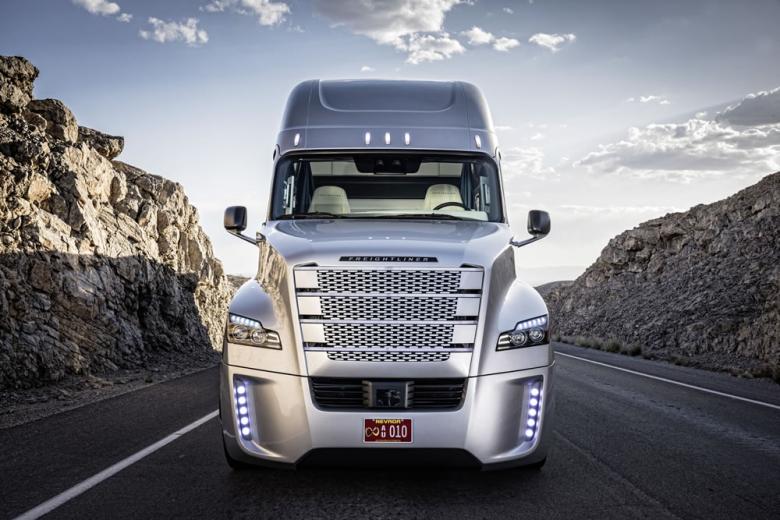1 5
The evolution in driverless technology will change how we use our roadways, public transport, parking lots and gas stations—and in turn this will fundamentally affect what assets perform well.
Firstly, driverless cars will change the importance of location, which is the derivative of transportation. St. Louis was extra valuable when river boats were the primary mode of transport; the train made Dallas and Denver possible; but the proliferation of automobile ownership after the Second World War changed everything. Now the driverless car will change everything again. For example, just think of how much more tolerable a long daily commute would be in a driverless car. Being able to eat, sleep or work on the way to the office changes what we consider to be a desirable location, and may drive us to choose quality over proximity when choosing our next home or office! Interestingly, these forces may counter or slow the continued migration to livable, walkable urban centers.
Driverless cars will also change the role that public transport plays in the design of our cities. In the future, autonomous Uber-like services will serve as (a far more convenient) alternative to trains and buses, which may diminish the appeal of public-transport-oriented development.
Secondly, driverless cars will create new opportunities for developers and governments to improve obsolete assets. Inner-city parking structures and gas stations can be turned into higher value assets through adaptive reuse projects (because why use prime real estate if cars can park and refuel themselves in a cheaper location?), and the more efficient use of roads (autonomous vehicles can drive much closer together) could allow some roads to be turned into parks or other more desirable spaces. Autonomous vehicles won’t need traffic signs and signals, leaving the streetscape more beautiful.
With driverless cars, the rule “you can build what you can park” will no longer hold true as developers won’t be restricted by stringent parking requirements. Already, landlords in San Francisco can be exempted from parking regulations by offering tenants Uber vouchers or other transport alternatives! In place of parking, there will be a need for ample space for rideshare services to pick up and drop off passengers.
E-commerce is changing how traditional stores are used. Increasingly, actual sales are taking place online and having a brick-and-mortar store is seen by many retailers simply as a necessary marketing expense: to provide a place for customers to see, feel or try on products, and to provide strategic exposure for a brand in the right location. The spatial requirements of these “showroom” assets will change accordingly.
Distribution centers are also affected by the evolution of e-commerce. Delivery services keep getting faster—many retailers now offer next- or same-day delivery of online purchases, and Amazon Prime Now can even deliver your goods within two hours of placing your order. Distribution centers must keep evolving to accommodate these promises: the need for centrally-located distribution centers with storage systems that allow for superfast sorting of products is starting to replace the demand for major suburban distribution centers. Many of these were built near freeways and train lines only a few years ago, but must now adapt to avoid becoming obsolete.
The impact of technology has even infiltrated grocery shopping. To date, grocery stores have run rather lean and been able to rely on a very stable type of consumer (because your apparel spend is far more sensitive to the economy than your grocery spend). But this may be changing.
Amazon has entered the market with Amazon Pantry and Amazon Fresh, offering its Prime members fast delivery of goods ordered online. This 800-pound gorilla of e-commerce is having a direct impact on the commercial real estate industry as it will need hundreds of strategically located warehouses, (refrigerated) distribution centers and transport networks to support its fast-growing grocery delivery business.
The “Instacart-effect” is also being felt in the grocery business. Online ordering and one-hour delivery of groceries is gaining popularity in major cities around the country, competing with traditional in-store sales for a share in the $700-billion U.S. grocery market. The leader in delivered groceries—Instacart—has just been valued at $3.4 billion. Even a relatively small percentage drop in revenue for the traditional grocery business will have a substantial effect on this industry.
Major supermarkets are taking note. Already, Instacart secures its own check-out, and plans to enable shoppers to bypass the register and use their phones to scan products. The company also obtains information about inventory and store layout from major grocers so shoppers can quickly navigate the aisles. Grocery stores recognize it is in their interest to adjust internal and external layouts to facilitate the most efficient collection and distribution of online orders. While grocery will continue to be a viable model for a very long time to come, stores will need to adapt to stay competitive. They may get smaller, or be re-designed to efficiently accommodate grocery delivery, in-store dining or even drive-thru.
Bank branches are considered very safe triple net lease assets that trade at a low cap rate. The problem is that online banking has meant that many traditional bank branches are obsolete and look nothing like the new banks that are being built today. The bank branch of the future is primarily used for consultation, which means the spaces are smaller but must be in a prime location. Investors should beware that when the lease rolls, a bank tenant may vacate poor locations in favor of space that better meets these modern demands. Or, the bank may opt to reduce its space and the landlord will seek to split the space between a bank and another tenant, such as a café. I expect that banks will continue to look to secure a presence in high traffic areas.

